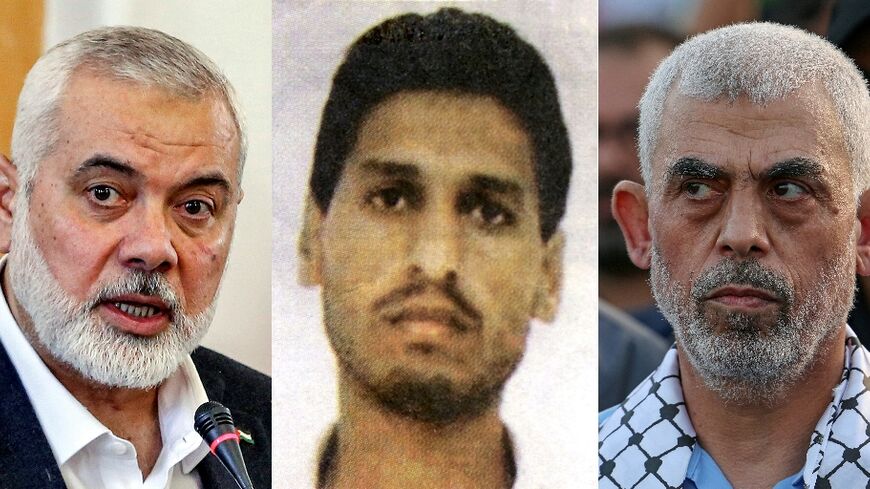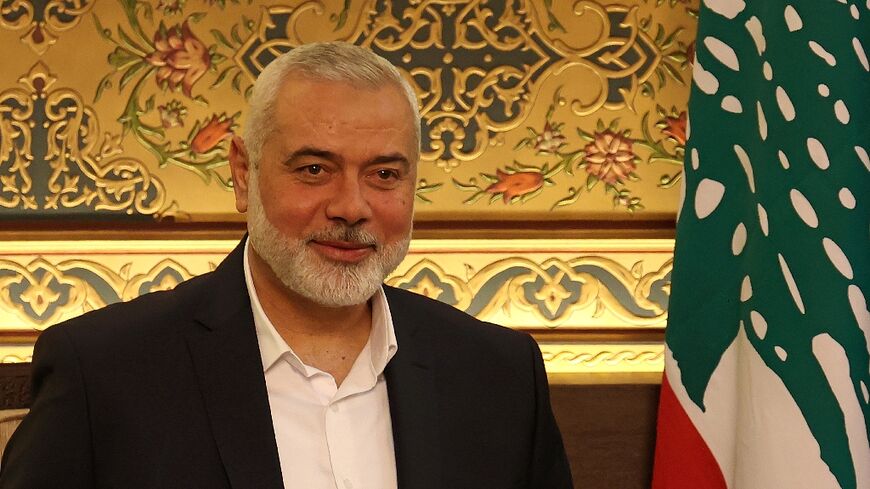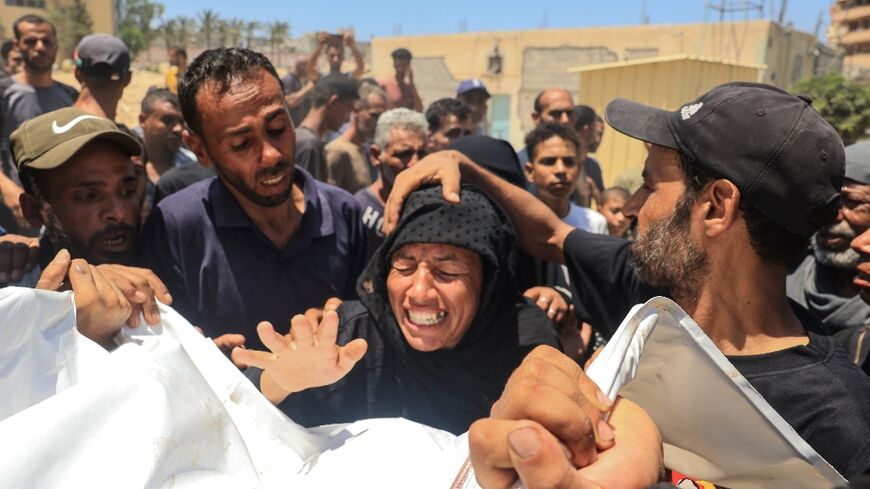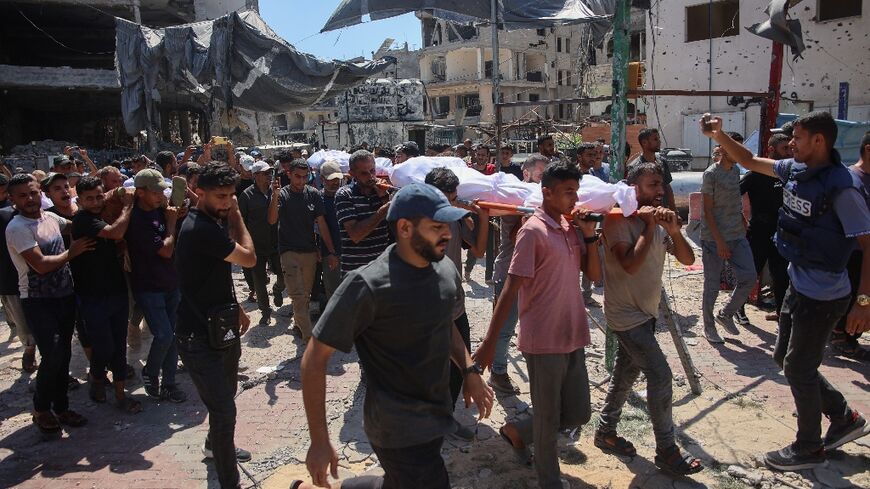Mohammed Deif: The Hamas 'chief of staff' targeted again by Israel

Hamas military chief Mohammed Deif has become a master at eluding Israeli attempts on his life and he may have made it seven out of seven when artillery and fighter jets pounded a suspected hideout on Saturday.
Israel's Prime Minister Benjamin Netanyahu acknowledged hours after an attack in southern Gaza that there was "no certainty" that Deif and one of his deputies, Rafa Salama, had been killed.
The health ministry in the Hamas-run territory said at least 90 people were killed and 300 injured in a strike on a displaced persons camp in Al-Mawasi. Hamas said claims that Deif had been targeted were "false news".
The head of the Ezzedine al-Qassam Brigades, Hamas's armed wing, has been among Israel's most wanted for nearly three decades and on a US list of "international terrorists" since 2015. He has survived at least six previous attempts on his life.
In announcing Saturday's deadly bombing raid, Israel said Deif was one of the "masterminds" of the October 7 Hamas attacks that set off the Gaza war. Israel insisted after the incursion that Deif and Hamas's political leader in Gaza, Yahya Sinwar, would be killed if found.
Deif was born in the Khan Yunis refugee camp in 1965. His real name is Mohammed Diab al-Masri.
Deif means "visitor" or "guest", and some say this is because he is always on the move with Israeli hunters on his trail.
He reportedly never spends more than one night in the same place and few photographs of him are known to exist. In January, Israel announced a new photo of Deif had been found, without specifying when it was taken.
In videos, Deif normally appears masked or shown in a silhouette.
Enemies have dubbed him the "cat with nine lives" because of his many close calls with death. The attempts on his life started around the time he was named Hamas's military head in 2002. His predecessor, Salah Shehade, was killed in an Israeli raid.
- Wife and son killed -
Shortly after, Israel launched an attack in Gaza to kill Deif, leaving him severely wounded instead. Unconfirmed reports suggested he lost an eye and possibly his legs.
In 2014, Israel launched an air strike on Gaza, killing Deif's wife and a seven-month-old son.
The attacks have not dented the influence of the man considered the Hamas "chief of staff". Deif announced the start of the Hamas attack on Israel dubbed "Al-Aqsa Flood" in an audio message on October 7.
In the recording, Deif is heard saying that "the positions and fortifications of the enemy have been targeted by 5,000 rockets and shells during the first 20 minutes" of the attack. "The rage of our people and our nation is exploding," he said.
Deif has been involved in Hamas since the 1980s when he was a student at the Gaza Islamic University and changed his name. He left with a degree in biology but turned to engineering and is said to have played a key role in the huge network of tunnels built beneath Gaza.
He is also said to have taken part in many Hamas operations, including the abduction of Israeli soldiers and the planning of suicide bombings.
He was detained by Israel around 1989 and spent about two years in a prison run by Yasser Arafat's Palestinian Authority. He was released or escaped, reports say.
Deif went to the top of Israel's wanted list in 1995, accused of killing Israeli soldiers and civilians.
In May, the chief prosecutor of the International Criminal Court requested a warrant for his arrest, alongside Sinwar and Qatar-based Hamas chief Ismail Haniyeh for war crimes and crimes against humanity.
The ICC prosecutor also applied for warrants against Netanyahu and Israeli Defence Minister Yoav Gallant.
The war in Gaza started with Hamas's October 7 attack on southern Israel which resulted in the deaths of 1,195 people, mostly civilians, according to an AFP tally based on Israeli figures.
The war started with Hamas's October 7 attack on southern Israel which resulted in the deaths of 1,195 people, mostly civilians, according to an AFP tally based on Israeli figures.
The militants also seized 251 hostages, 116 of whom remain in Gaza, including 42 the military says are dead.
Israel responded with a military offensive that has killed at least 38,443 people in Gaza, also mostly civilians, according to a toll from the Gaza health ministry issued Saturday afternoon.
Israel responded with a military offensive that has killed at least 38,443 people in Gaza, also mostly civilians, according to a toll from the Gaza health ministry issued Saturday afternoon.



